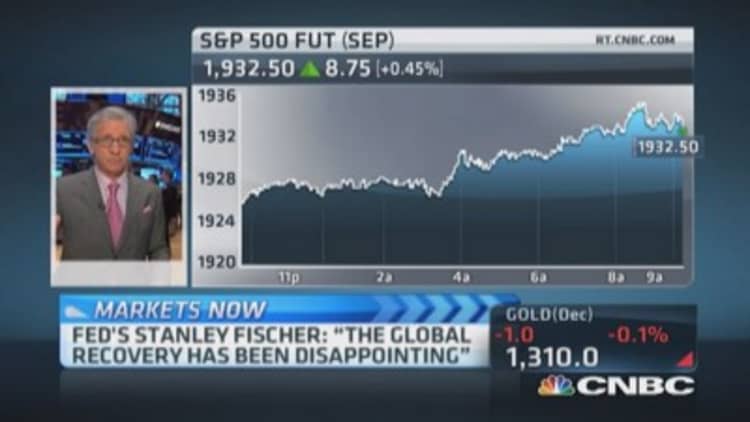
Kinder Morgan put together a massive $44 billion deal on Monday, an exclamation point on how hot the energy sector is nowadays. The pipeline operator will pull together its parts, including Kinder Morgan Energy Partners, Kinder Morgan Management, and El Paso Pipeline Partners while abandoning its Master Limited Partnership (MLP) structure that combines all its parts into a classic corporation.
As CEO Rich Kinder told CNBC, by shedding the MLP structure and going to a straight corporation they get lower capital costs that make them more competitive in their quest to keep buying assets.
Is this a trend? Not likely. This is a bit of an anomaly, because Kinder Morgan had so many different companies that were less than the sum of their parts.
That said, the basic story behind infrastructure as a play on energy—and MLPs specifically—is very much intact. Analysts have noted for several years that infrastructure assets, especially pipelines, are critical to the growth of the shale revolution. The pipeline partnership structure is a "backdoor" play on surging U.S. oil and gas production. That is why the MLP business is thriving: the companies that control these assets will benefit the most from energy supplies.
Several exchange-traded funds (ETFs) have gone public in the last month, including Westlake Chemical, which rang the opening bell at the NYSE this morning. And there's another big deal coming soon: Shell announced in June that it was going to fold a lot of its assets into an MLP. They have already filed an S-1, and it may happen in the third quarter.
They're not alone. Occidental is spinning off its California operations, while Hess has already announced plans to do an MLP of its U.S. assets. Marathon already has a partnership (MPLX). Phillips 66 did one last year: Phillips 66 Partners.
You are now at a stage where big oil companies are deciding they don't need these assets as part of their companies. They are energy explorers, not pipeline operators. The reason they ended up owning these pipeline assets goes back to the old Robber Baron days, when the fear was that someone would have a monopoly on pipelines. They would fold their arms across their chest and tell you what they would charge to transport the stuff. Ergo, they had to own the pipes.
Now, they don't need to do that anymore. They can spin them off, collect a slug of money for dropping assets into an MLP, then become the general partner and collect the cash flow. In time, they keep adding more assets and collecting a bigger share of the cash flow.
--By CNBC's Bob Pisani


